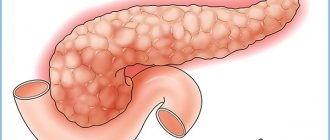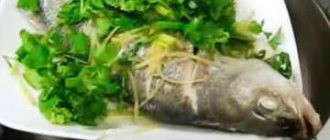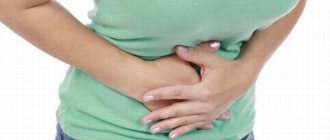During pregnancy, the female body changes, which leads to an exacerbation of chronic pathologies. These include pancreatitis during pregnancy. In most paintings this is a slow process, however, sometimes it occurs for the first time.
Pancreatitis is an inflammatory process of the pancreas that can lead to serious complications in the first trimester, but does not in any way affect the intrauterine development of the fetus after 16 weeks.
Manifestations can be acute, characterized by a rapid and violent course, or chronic, accompanied by a sluggish course. Treatment takes a lot of effort, requires the use of medications, and adherence to a strict diet.
Let's consider what reasons lead to the development of prostatitis, and what symptoms does the expectant mother experience? How is treatment carried out in an interesting position?
Description of the disease
The pancreas is a vital organ, one of whose functions is the production of pancreatic juice. It contains enzymes responsible for the breakdown of proteins, fats, and carbohydrates. Therefore, without proper production of pancreatic juice, normal digestion is impossible.
Enzymes that have passed through the splitting stage must enter the duodenum. When inflammation occurs, the work of enzymes begins earlier - before they enter the intestine, that is, they are activated in the pancreas. The result of this is tissue damage; to put it simply, the pancreas “digests itself.” This phenomenon is called pancreatitis.
One of the greatest complications of pancreatitis, that is, the inflammatory process of the gland, is pancreatic necrosis. This pathology occurs when, due to a strong inflammatory process, a significant number of pancreatic cells die.
Extensive pancreatic necrosis is an extremely serious condition that is life-threatening. It is rare when the inflammatory process lasts for many years and is not treated.
Could there be consequences for the child?
Severe pancreatitis during pregnancy can cause dehydration, as well as a lack of essential nutrients and mineral components. Constant vomiting depletes the reserves of electrolytes and vitamins that are necessary for the proper development of the baby.
In extreme cases, severe forms of pancreatitis can lead to the following consequences:
- miscarriage;
- pathology of the placenta (abruption);
- bleeding of uterine nature;
- premature birth;
- fetal death;
- complications of an infectious nature.
Reference! Pregnancy is set up in such a way that the baby feeds on maternal reserves, so exhaustion will begin first of all in the woman. Severe weakness of the mother can harm the development of the baby.
The chronic form of the disease has a high chance of not manifesting itself throughout the entire period of pregnancy , since the expectant mother strives to establish proper nutrition and daily routine. But a woman needs to monitor her health by taking tests, since the asymptomatic form of pancreatitis can continue to have a detrimental effect on the body.
For example, a violation of insulin synthesis will negatively affect the development of the unborn baby, so you should notify the gynecologist about all symptoms, and if any pathology occurs, undergo the necessary diagnostics in a timely manner.
Forms
Pancreatitis during pregnancy can be of two forms: acute, chronic. In the first case, the disease is subject to mandatory treatment, in the second, everything depends on the symptoms present and the general condition of the woman.
Spicy
Acute pancreatitis, fortunately, is extremely rarely diagnosed during pregnancy. Typically, expectant mothers monitor their diet and do not have bad habits, so the emergence of new diseases of the digestive system associated with inflammation due to an unhealthy lifestyle is practically excluded. Exacerbation of the chronic form is more common. However, acute pancreatitis still appears, although rarely.
The peculiarity of this form of the disease lies in its rapid development. When carrying a child, a woman’s digestive system is subjected to double load, so when an inflammatory process occurs, it develops quickly. The first sign of the onset of pancreatitis is severe pain in the abdomen (upper part).
The danger of acute pancreatitis that begins during pregnancy is that its symptoms can be mistakenly confused with toxicosis. They are nausea, abdominal pain, aversion to food, and others. Pregnant women may feel that what is happening to them is normal for their situation. Therefore, it is important to know the main causes and signs of pancreatitis.
Chronic
If a woman had already been diagnosed with chronic pancreatitis at the time she became pregnant, her task is to prevent an exacerbation. To do this, it is enough to follow the doctor’s recommendations on nutrition and, if necessary, take a course of medications.
Symptoms and the need for therapy depend on the form of chronic pancreatitis:
- Dyspeptic. It appears similar to toxicosis. A woman may experience nausea, sometimes problems with bowel movements, and loss of appetite.
- Painful. It is accompanied by severe pain in the upper abdomen, which first appears after eating, then is constant - a sign of the onset of exacerbation of chronic pancreatitis.
- Latent. The most dangerous form of the disease, in which absolutely all symptoms are absent. They appear occasionally, blurry. A pregnant woman can easily confuse them with signs of toxicosis.
In general, the symptoms of chronic pancreatitis during pregnancy are not clearly expressed. It intensifies only if an exacerbation begins.
Inflammation of the pancreas can begin at any period of pregnancy, but in the early stages this happens rarely, more often in the third trimester.
How to treat
When a pregnant woman develops pancreatitis, the attending physician carries out a differential diagnosis of toxicosis and pancreatitis and treats the woman taking into account the information received.
A biochemical blood test, as well as stool and urine tests, will help recognize pancreatitis during pregnancy. During pregnancy, women are contraindicated from undergoing CT and radiography.
As a rule, treatment of pregnant women is carried out according to the following approximate scheme:
- Correction of the patient’s menu becomes an integral part of the treatment process. Spicy and fatty foods, as well as confectionery, pickles, marinades and chocolate are excluded from the diet. Food is allowed to be consumed only in warm semi-liquid form, fractionally and in small quantities.
- Antacids are used to reduce the acidity of gastric juice and reduce pain.
- For the purpose of replacement therapy, pancreatic enzymes are prescribed.
- Correction of dysbiosis is carried out with the help of probiotics.
Experts categorically do not recommend using traditional methods of treatment for such a combination as chronic pancreatitis and pregnancy. Since the pharmacological effects of even the safest medicinal plants have not been fully studied and can have a negative impact on a developing baby. In addition, changes in the immune status of a pregnant woman’s body can lead to allergic reactions to familiar foods and drug components.
Treatment of acute pancreatitis is performed in a hospital. In the first days of the disease, parenteral nutrition is possible. Then they prescribe a diet, use medications to relieve the attack and alleviate the general condition of the expectant mother. Treatment tactics will vary depending on the severity of the pathological process and its prevalence. During treatment, constant monitoring of the fetus is required.
Treatment of chronic pancreatitis is carried out only in the acute stage.
Drug therapy involves the use of the following medications:
- antispasmodic - “Drotaverine”, “Papaverine”;
- anti-enzyme - to suppress pancreatic function - “Pantripin”, “Gordox”;
- enzymes that are prescribed outside the period of exacerbation - “Pancreatin”, “Mezim”;
- proton pump inhibitors - “Rabimak”, “Omez”;
- antacids - Almagel, Gaviscon. They help reduce the acidity of pancreatic juice, and this helps relieve the inflammatory process;
- choleretic drugs – “Holosas”, “Allohol”, which normalize the flow of bile and help improve digestion.
Independent childbirth is acceptable if the condition of the woman and fetus is satisfactory. For pancreatitis, cesarean section is performed quite rarely. When all the doctor’s recommendations are followed, there is a high chance of having a healthy child.
If there are cysts in the pancreas, they are surgically removed. During pregnancy, surgery is not performed; it is postponed until the postpartum period.
Planned surgery. This type of surgery is performed when there is no progress in therapy or the rapid development of pancreatitis. The prerequisite is the complete inability to get rid of the pain syndrome. Before the operation, the diagnosis is again performed to get rid of possible misdiagnosis.
The basis of non-drug therapy is a diet, the rules of which are as follows:
- you should eat often - 5-6 times a day;
- reduce the size of portions;
- refuse fried, fatty, spicy foods;
- limit salt intake;
- increase the proportion of protein in the diet;
- take multivitamins;
- stop smoking and drinking alcohol.
The list of permitted products is as follows:
- soups: vegetarian, with buckwheat, oatmeal, pearl barley, rice, noodles, fruit, dairy. Vegetarian cabbage soup, beetroot soup, pea soup with a minimum of peas;
- porridge: pureed, cooked in water or half and half with milk from buckwheat, semolina, oatmeal, millet, rice. Pilaf with dried fruits;
- pasta with low-fat sauce;
- lean varieties of beef, veal, poultry (turkey, chicken). Everything is steamed or boiled. Dishes prepared in pureed form are consumed - soufflé, mashed potatoes, quenelles, etc., cabbage rolls;
- low-fat varieties of fish, boiled or baked;
- bread: bran, rye, crackers;
- sour cream, yogurt and milk, low-fat, mild, feta cheese;
- eggs - in the form of omelettes;
- vegetables: bell peppers, tomatoes (a little), seaweed, cucumbers, potatoes, zucchini, pumpkin, cauliflower;
- fruits: pureed apples of non-acidic varieties, bananas (no more than one per day), fresh fruit compotes, watermelon, papaya, melon, pineapples,
- marshmallow, honey, gingerbread, lollipops, marshmallows.
The following drinks are allowed: weak black tea with lemon, rosehip infusion, juices diluted with water, non-acidic fruit drinks and jelly, chamomile infusion.
Causes
The causes of pancreatitis during pregnancy can be associated with pathological processes in the body, or arise through the fault of the woman. The main ones are:
- cholecystitis, gastritis, other diseases of the digestive system;
- heredity;
- infection;
- hormonal disorders.
The most common cause is poor diet. Every expectant mother receives recommendations on choosing a diet from a doctor. Due to indulgence in taste desires, poor diet, consumption of fatty, fried, smoked, salty foods, inflammation of the digestive system may develop.
The physiological cause of pancreatitis during pregnancy is associated with the growth of the uterus. Due to its increase in size, the pancreas is subject to constant pressure. More often this manifests itself in diseases associated with pathological changes in the uterus.
Complications
In the absence of adequate therapy, the progress of pancreatitis is dangerous due to the onset of conditions that provoke premature termination of pregnancy.
According to statistics, the acute form of this disease causes miscarriage or premature birth in 35% of cases, and during labor there remains a high probability of death for the woman in labor.
In case of an unfavorable course complicated by pregnancy, the following severe pathological conditions may develop:
- abscess formation;
- formation of multiple fistulas;
- peritonitis;
- internal extensive bleeding;
- complete exhaustion of the body;
- systemic diseases (diabetes mellitus).
Signs during pregnancy
The main symptoms of pancreatitis during pregnancy are not much different from the symptoms of the disease in non-pregnant women.
The main signs of pancreatic inflammation are:
- Nausea. If the nausea associated with toxicosis is constant, then with pancreatitis it usually appears after eating. Then it often turns into vomiting.
- Temperature increase. Usually it is insignificant - up to 37–37.5 degrees.
- Pain of a girdle nature. It occurs in the upper abdomen and then spreads to other parts.
- Dyspepsia. Diarrhea with pancreatitis can be pasty or liquid. It occurs due to the presence of undigested fat.
- Loss of appetite. Due to the lack of desire to eat, the body suffers from a deficiency of beneficial microelements that enter it with food. This affects the deterioration of general well-being.
An attack of acute pancreatitis is always accompanied by severe pain - women usually complain about it and consult a doctor.
A little about pancreatitis
Everything would be limited to the digestive organs, if not for the release of enzymes and toxic substances during illness. They can be absorbed into the blood and cause harm throughout the body.
Pancreatitis has been divided into several forms:
- acute and acute recurrent;
- chronic and acute chronic.
The causes of pancreatitis include:
- First of all, alcohol abuse;
- manifestations of cholelithiasis;
- various injuries and viral infections;
- the presence of parasites in the body;
- a minimal percentage of the disease develops after endoscopic examination.
Inflammation of the pancreas is observed in people over 30 years of age, and the percentage of female patients is 2 times higher than male. Treatment of pancreatitis is based on following a strict diet and taking special medications.
This is not the most pleasant type of disease for people in a normal position, but pancreatitis and pregnancy are an unpleasant tandem, the risks of complications only increase.
Diagnostics
To confirm the diagnosis of pancreatitis, the woman is prescribed additional diagnostics. Considering the danger of the inflammatory process, it is urgent. Diagnostics includes:
- general blood test - displays signs of an inflammatory process;
- biochemical blood test;
- Ultrasound of the pancreas.
Ultrasound results are the basis for confirming the diagnosis. The image on the screen displays symptoms of pancreatitis such as an increase in the size of the pancreas, a decrease in the echogenicity of tissues, and heterogeneity of their structure. Usually, X-ray examination methods are also prescribed to confirm pancreatitis, but they are strictly contraindicated for pregnant women.
Treatment
Treatment of pancreatitis during pregnancy should be comprehensive; it necessarily includes drug therapy and diet. Occasionally, for the purpose of prevention, it can be supplemented with the use of folk remedies.
If acute pancreatitis is suspected in a pregnant woman, urgent hospitalization is required. If the diagnosis is confirmed early, the patient may be offered termination of pregnancy. If the term is late, the question of early delivery usually arises.
If inflammation has just begun to develop, there are no serious consequences yet and there is no risk to the life of the expectant mother and child, drug therapy may be prescribed. It is carried out strictly after hospitalization, the patient is under constant medical supervision.
Therapy consists of the use of the following groups of drugs:
- to eliminate pain – Spazmalgon, No-Shpa;
- to normalize stool and relieve symptoms of dyspepsia - Maxilak, Linex;
- antacids - Almagel, Gaviscon;
- choleretic – Allochol;
- other anti-inflammatory.
Symptoms
There are a number of general signs that can be used to suggest developing pancreatitis:
- acute pain syndrome in the epigastric region;
- increased body temperature;
- digestive disorders;
- loss of appetite due to nausea, leading to vomiting;
- leg cramps that occur simultaneously with attacks of nausea;
- low blood pressure, causing attacks of weakness and dizziness.
During pregnancy, these manifestations are supplemented by a critical decrease in body weight with an unchanged diet, pain in the left hypochondrium of an acute cutting nature, diarrhea, and flatulence.











